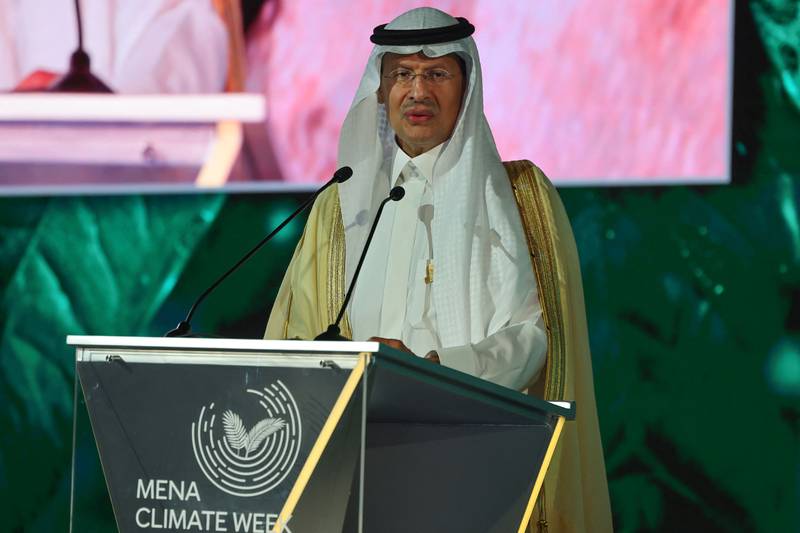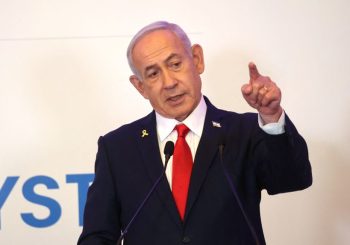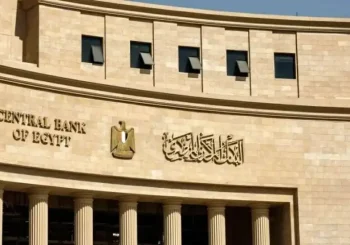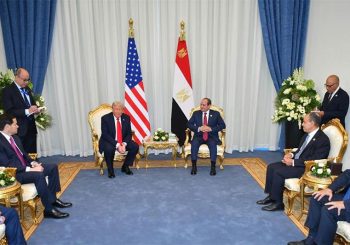Saudi Arabia will launch, early next year, a mechanism allowing companies to offset their emissions by buying credits from projects that voluntarily cut or remove greenhouse gas emissions.
The Kingdom announced the Greenhouse Gas Crediting and Offsetting Mechanism (GCOM) on Monday at MENA Climate Week 2023, currently taking place in Riyadh.
“This step reflects the Kingdom’s leading role in the region in addressing climate challenges and enabling institutions to tackle their emissions. It’s also part of the Kingdom’s efforts to reduce the impact of climate change,” according to the Saudi Ministry of Energy’s website.
The project was first announced by Saudi Energy Minister Prince Abdulaziz bin Salman at the Saudi Green Initiative held during COP27 in Sharm El-Sheikh, Egypt, in November 2022.
The carbon credit market system is enabled through Article 6 of the Paris Climate Agreement and is on a voluntary basis.
Under a carbon credit market scheme, companies are allocated a specific quantity of carbon credits, indicating the maximum emissions they can generate. If a company exceeds its allotted credits, it is required to buy extra credits from other businesses that have emitted less than its allocated amount.
“[GCOM] could be a game changer in enabling a number of private companies to achieve their carbon reduction targets. It also builds on the success of the new voluntary carbon market. Saudi could become the regional marketplace. All in all, it is a win for the Kingdom and the region,” Karim Elgendy, a non-resident scholar at the Middle East Institute, told Egyptian Streets.
Saudi Arabia’s Energy Minister Prince Abdulaziz bin Salman said on Monday that Saudi Arabia could achieve net-zero emissions before its current deadline of 2060.
“My personal preference is if we could do it by 2040 or 2045 [but] we don’t want to make a commitment that we cannot deliver,” he stated at the MENA climate week.
The Saudi Energy Minister’s comments follow his earlier remarks on Sunday where he made the case for oil and gas at the opening of the climate conference.
“There is a case for us to continue to be in oil and continue to be in gas,” the Minister said at the conference in Riyadh, adding that “although the share of oil and gas may diminish” it will still be part of an overall energy system that could see demand double by the middle of the century.
Along with the Saudi Energy Minister, and Sultan Al-Jaber, president-designate of the COP28 climate conference, Egypt’s Minister of Foreign Affairs and COP27 President-Designate Sameh Shoukry gave a speech at the opening session of the event.
Shoukry highlighted Egypt’s “successful hosting and leadership of the previous climate negotiations in Sharm el-Sheikh, which achieved historic outcomes that support global efforts to tackle the climate challenge,” according to a statement from the Ministry of Foreign Affairs.
The Egyptian Minister also expressed his pride in leading the Arab region in the multilateral climate negotiations for two consecutive years, the statement mentioned.
The United Nations’ COP28 climate summit is set to take place from 30 November until 12 December 2023 in Dubai.







Comments (0)